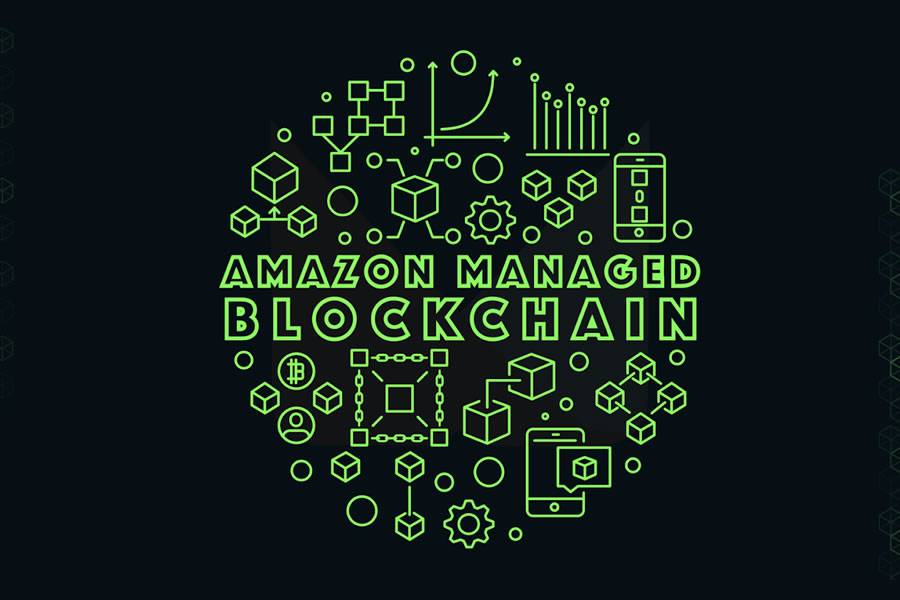Does the Amazon Company use Blockchain?
- 10-04-2023
- Business
- Canarian Weekly
Amazon is one of the largest and most successful companies in the world, offering a vast range of products and services to millions of customers worldwide. With its incredible growth and massive reach, it is no surprise that Amazon has been exploring new technologies and innovations to enhance its operations and services.
One such technology that has been gaining increasing attention is blockchain, which is a decentralized and secure ledger technology that can be used for a variety of applications.
By delegating the operational work of blockchain, Amazon has made the difficult effort of developing, maintaining, and understanding blockchain simpler. Similar to renting a blockchain from a blockchain operator, Amazon.
They are not required to spend money on maintaining and managing the blockchain network. In the end, it will save the company money and time, allowing Amazon to concentrate on its primary business.
Blockchain is often associated with cryptocurrencies like Bitcoin which offers smart and seamless trading using http://tesler.software/, but its potential extends far beyond that. The technology can transform a wide range of industries, from finance and logistics to healthcare and entertainment.
So, the question arises, does the Amazon Company use blockchain? The answer to this question is not straightforward, as Amazon's involvement with blockchain technology is not fully transparent.
Relationship Between Amazon and Blockchain.
Amazon has not made any official announcements or statements about its use of blockchain technology. However, the company has made a few strategic moves that suggest its interest in blockchain. For instance, Amazon Web Services (AWS) offers blockchain-related services, such as Amazon Managed Blockchain, which allows users to create and manage their blockchain platforms.
Amazon's blockchain services are aimed at providing customers with a secure and scalable way to build and deploy blockchain applications. The service supports popular blockchain frameworks like Ethereum and Hyperledger Fabric, allowing customers to create their blockchain networks without the need for extensive technical expertise.
AWS also provides integration with other Amazon services, such as Amazon S3 and Amazon Aurora, making it easier for customers to develop and deploy blockchain applications.
Amazon has also filed several blockchain-related patents, indicating its interest in exploring the technology further. Some of these patents include a blockchain-based marketplace for data, a system for proof-of-work consensus using cryptographic hashes, and a blockchain-based supply chain tracking system.
Amazon has also partnered with other companies in the blockchain space, such as R3 and ConsenSys, to explore the potential of blockchain technology. R3 is a blockchain software firm that provides distributed ledger technology to financial institutions, while ConsenSys is a blockchain software company that develops decentralized applications and infrastructure for the Ethereum blockchain.
Some Use Cases of Blockchain at Amazon:
1 Supply Chain Management: Amazon could use blockchain technology to manage and track its supply chain operations more efficiently. With blockchain, Amazon can create a transparent, immutable record of every product's journey from the manufacturer to the end customer.
2 Payment Processing: Blockchain technology can be used to provide a secure and decentralized payment system for Amazon customers, eliminating the need for intermediaries like banks and payment processors.
3 Digital Identity Verification: Amazon could use blockchain technology to verify the identities of customers and suppliers, ensuring the security of their transactions and reducing the risk of fraud.
4 Smart Contracts: Smart contracts can be utilized on the blockchain to automate various business processes, such as product delivery and payment processing, streamlining their operations and reducing costs.
5 Loyalty Programs: Blockchain technology can be employed to create a decentralized loyalty program, allowing users to earn and redeem rewards without the need for a centralized intermediary.
6 Data Sharing and Privacy: Amazon could use blockchain technology to ensure the security and privacy of customer data, allowing them to share their data only with authorized parties while maintaining control over their personal information.
7 Decentralized Marketplaces: Blockchain platforms can be used to create decentralized marketplaces, allowing customers to buy and sell goods and services directly with each other, without the need for intermediaries.
Conclusion:
Blockchain technologies are undoubtedly starting to gain popularity. They now have applications in a wide range of different industries after outgrowing their original use for financial transactions. With this, the blockchain has created new opportunities for advancement.
The processes will become more effective, economical, and time and money-saving. Overall, blockchain technology has the potential to transform many aspects of Amazon's business, from supply chain management to payment processing, and create new opportunities for innovation and growth.



























































